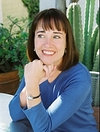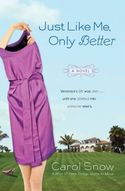CAROL SNOW | FUTURE AUTHORS OF AMERICA


I don’t know whether accountants hear about children who dream of doing taxes or if parents brag to plumbers about kids gifted with a plunger and wrench. But I’ll tell you this much: parents (mothers especially) frequently confide that their son or daughter (daughter, usually) loves to write and hopes to be an author someday.
They say that like it’s a good thing. And I kind of don’t get it. That is, I understand the kids’ ambition - if that’s the right word. When I grow up, I want to stay at home in my pajamas and make stuff up about people who don’t exist.
But why do parents want that for their children? Is it because they think that if your name is on a book, you must be making a lot of money? Or do they not realize that most authors - at least the ones I know - consider themselves to be just a little bit . . . off?
It’s not just that some (most) of us have certain slacker tendencies. I recently asked twelve author friends, "What three adjectives best describe yourself or most writers you know?" Four of the twelve authors responded (there’s that slacker thing). With thanks to Amy Goldman Koss, Andrew Smith, Alexa Young and Jill Smolinksi (listed them in order of response speed), this is what writers are like: arrogant, insecure, hopeful, disciplined, obsessive, tense, hypersensitive, narcissistic, bizarre, alcoholic.
That’s only ten words, you may notice. That’s because "insecure" and "hopeful" both appeared twice. A full fifty percent of respondents in my carefully controlled study described authors in those terms! (Full disclosure: I received a C- is college statistics.) Is insecurity really what we want for the next generation?
Maybe that "hopeful" thing is what it’s all about. Alexa Young, who was part of the 50% of respondents who didn’t use that word to describe writers, says of her early career goals, "I thought being an author would result in fame and riches beyond measure. Ha ha ha ha ha ha ha. Yes, I really thought my ideas and talent would capture the public's imagination like no author before me. Ooops."
Amy Goldman Koss was somewhat more pragmatic: "There were no real options. I lack all other skills and need lots and lots of alone time."
Andrew Smith, who kind of went out of his way to undercut everything I just said, reports that his parents disapproved of his writing ambitions but that his son considers him a role model. And he’s okay with that: "If my kids (I have a 12-year-old girl and a 15-year-old boy) want to be writers, I would definitely encourage them to do it, as long as they promised to never use exclamation points in their prose."
I encourage everyone to write to Andrew and tell him, "I really like what you said about role models!!!!!!"
Recently, my highly imaginative (if somewhat punctuation-impaired) ten-year-old son remarked, "For some reason, I think I’m going to write books when I grow up." Not "I hope," not "I want," but "I think."
Did I encourage him to become something else instead? An accountant or plumber? Maybe a doctor? (Truth: I’d be pretty psyched if he became a doctor.) Of course not.
"If you work hard, you can be anything you want to be."
I believe it, too. I’m nothing if not hopeful.
To comment for a chance to win on Future Authors of America please click here.


0 Comments:
Post a Comment
Subscribe to Post Comments [Atom]
<< Home